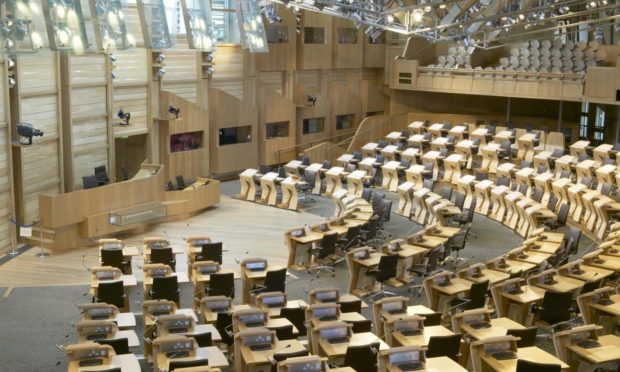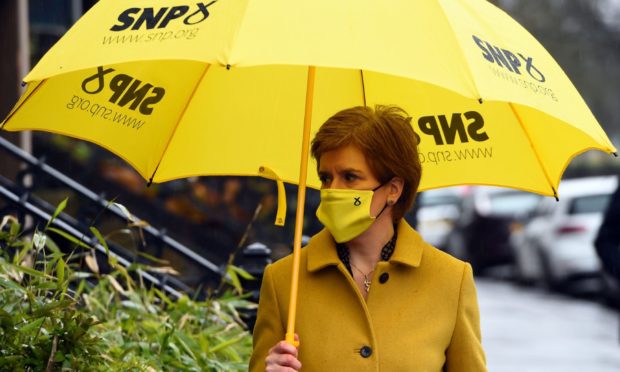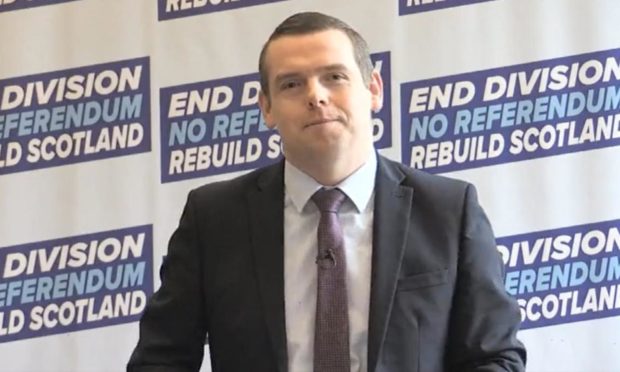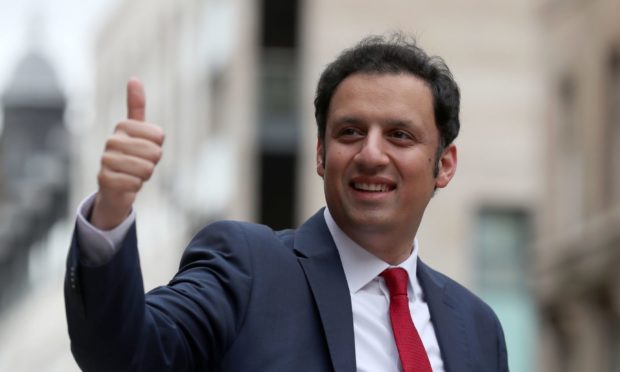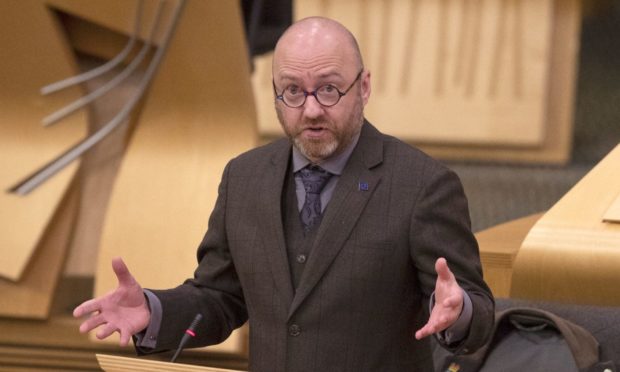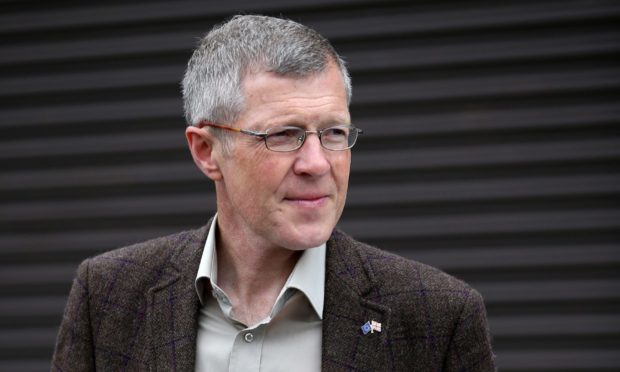The Scottish Parliament has seen coalitions, minority government and outright majority rule since it was established at Holyrood in 1999.
The last session saw the SNP in control but reliant on other MSPs to get contentious legislation over the line.
Polls have fluctuated as the election campaign picks up pace and it is not certain whether Nicola Sturgeon’s party will be pegged back again or make it over the magic half-way line to a majority.
Here’s our run-down of how the parliament looked over the past five years, who the leaders are and what the debating chamber might look like after the votes are in on Thursday May 6.
Scottish National Party
Nicola Sturgeon has been leader of the SNP since 2014, when she took over from Alex Salmond.
Her party returned 63 MSPs in the 2016-21 parliament. The tally was by far the biggest but fell just short of a majority.
The SNP’s minority status did not stop the party forming a Scottish Government, but support from other groups was required to pass budgets and legislation.
Our latest polling, carried out by Survation, suggests the SNP is on course for another victory. But it is not clear if Ms Sturgeon will achieve a majority or have to rely on support elsewhere again.
Analysis of the figures by elections expert Professor John Curtice suggests the SNP could gain that crucial one extra seat and end with 66. That would allow Ms Sturgeon to govern without being blocked by a unified opposition.
Scottish Conservatives
Douglas Ross leads Holyrood’s largest opposition party but does not have a seat there – yet.
The Moray MP took over from Jackson Carlaw, who stepped aside saying he was not the right man to lead the party into the election.
In a twist, the party group was led day-to-day in the chamber by Ruth Davidson, who had already stepped down from formal leadership duties in 2019, blaming the fall-out of Brexit.
Complications aside, Mr Ross is standing on the Highlands and Islands regional list, which should give him an easy route into the Holyrood chamber.
In 2016, the Conservatives elected 31 MSPs and leapfrogged Labour into second place for the first time since devolution was established in 1999.
Polls suggest it will be a close contest with Labour desperately trying to overtake.
Scottish Labour
Anas Sarwar has hardly had time to settle into the job of party leader but is already being tested in a national election.
The Glasgow region candidate won a quick contest to replace Richard Leonard just over a month ago.
Polling analysis hints he has a chance of regaining second place from the Conservatives.
In 2016, the party slumped to its worst result, returning just 24 MSPs.
Since then the UK leadership has shifted from Jeremy Corbyn to Keir Starmer and Mr Sarwar is hoping his change of management will also give the party a bounce.
Polls have varied but the latest surveys point to an increased share of the vote potentially giving the party around 24 MSPs.
Scottish Green Party
In contrast to other groups, the Greens elect co-conveners in and out of parliament.
Patrick Harvie is arguably the most well known but he shares duties with Lorna Slater, who has not been an MSP.
The party has only ever won seats on the regional list and returned six MSPs in 2016.
The Greens support independence along with the SNP, giving Holyrood a pro-referendum majority over the past session.
Polls have put the party on figures that could see them return as many as 11 MSPs this time.
Scottish Liberal Democrats
Willie Rennie has been an MP and MSP but his experience has not translated into major gains for the party.
Once government coalition partners at Holyrood, the Lib Dems tumbled down the pecking order in 2011.
It was seen as a backlash at the UK Government coalition with the Conservatives but has been tough to recover from.
In 2016, the party took just five seats. Their support seems concentrated in small areas, which means Lib Dems can still win first-past-the-post constituencies in places such as Shetland but struggle nationally.
Recent surveys hint at a small revival with potentially seven MSPs.
Independents and other parties
Holyrood had no independent MSPs in 2016 but finished with several.
Derek Mackay and Mark McDonald were forced out of the SNP in scandals but continued as independent members.
Andy Wightman left the Greens after a row over the way gender reform was being debated.
Michelle Ballantyne left the Conservatives after differences of opinion with party direction. She saw out the session as a Reform UK member.
Ken Macintosh, a former Labour MSP, has no party affiliation in Holyrood as its impartial Presiding Officer.
